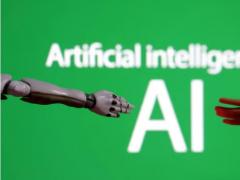Cloud providers are racing to secure deals with leading AI startups, and the latest to join forces is Fei-Fei Li’s World Labs. The startup recently selected Google Cloud as its primary compute provider to help train its AI models, in a partnership that could eventually be worth hundreds of millions of dollars. Despite Li’s previous role as the chief AI scientist at Google Cloud, the company insists this connection wasn’t a deciding factor in the deal.
Announced during the Google Cloud Startup Summit on Tuesday, World Labs revealed that a substantial portion of its funding will go toward licensing GPU servers through Google Cloud. This infrastructure will be used to train "spatially intelligent" AI models that the startup is developing.
AI startups with strong funding and a focus on foundational models are hot commodities in the cloud services space. Major deals have already been inked with companies like OpenAI, which relies solely on Microsoft Azure, and Anthropic, which has partnerships with both AWS and Google Cloud. These firms often spend millions on compute services, and their growing needs could make them even more valuable clients for major cloud providers like Google, Microsoft, and AWS.
World Labs stands out for its focus on creating multimodal AI models, which demand significant computing power. The startup recently secured $230 million in funding, raising its valuation to over a billion dollars. Led by A16Z, this investment aims to fuel the development of AI world models. According to James Lee, Google Cloud’s General Manager for Startups and AI, World Labs is working on models capable of processing, generating, and interacting with video and geospatial data—what the company refers to as "spatial intelligence."
Li’s previous work with Google Cloud, where she spearheaded its AI efforts in 2018, might suggest a natural alignment, but Google firmly denies that her past relationship influenced this deal. Instead, Google emphasizes the technical advantages that attracted World Labs, including its High Performance Toolkit for scaling AI workloads and a robust offering of AI chips.
"Fei-Fei is certainly a friend of GCP," Lee remarked in an interview. "But World Labs explored other options before choosing us. Ultimately, our infrastructure’s ability to meet their scalability needs was the deciding factor."
Google Cloud offers AI startups a choice between its proprietary TPUs (tensor processing units) and Nvidia’s popular GPUs, though supply of the latter remains constrained. In an effort to reduce reliance on Nvidia, Google is encouraging startups to use TPUs. However, the industry’s preference for GPUs continues, and World Labs has chosen to train its AI models on them in this case. Google hasn’t disclosed the specifics of this decision but notes that such choices can evolve as a company’s technology matures.
"We collaborated closely with Fei-Fei and her product team," Lee explained. "At this stage of their product roadmap, it made more sense to utilize our GPU platform, though that could change over time."
Though the size of World Labs' GPU cluster remains undisclosed, it's clear that cloud providers often dedicate vast supercomputers to AI startups. Google recently provided another AI startup, Magic, with access to a cluster of tens of thousands of Blackwell GPUs, each boasting more power than a top-tier gaming computer.
However, fulfilling such promises isn't always straightforward. Google’s primary competitor in the cloud space, Microsoft, is reportedly grappling with OpenAI’s immense compute requirements, prompting the AI firm to seek additional solutions.
World Labs' agreement with Google Cloud is non-exclusive, meaning they may partner with other cloud providers in the future. For now, however, Google Cloud hosts the majority of the startup’s computing workloads and aims to keep that business going forward.

